Introduction
Blueberry juice has quickly become one of my favorite recipes to share — not only for its refreshing taste but for its incredible health benefits. Hi, I’m Adalynn, and my passion for cooking started with simple recipes like this one. I didn’t grow up cooking, but over time, my kitchen became a place of creativity, comfort, and connection. This blueberry juice recipe is more than just a drink — it’s a reminder that even the simplest ingredients can bring joy, wellness, and a little bit of magic to your day.
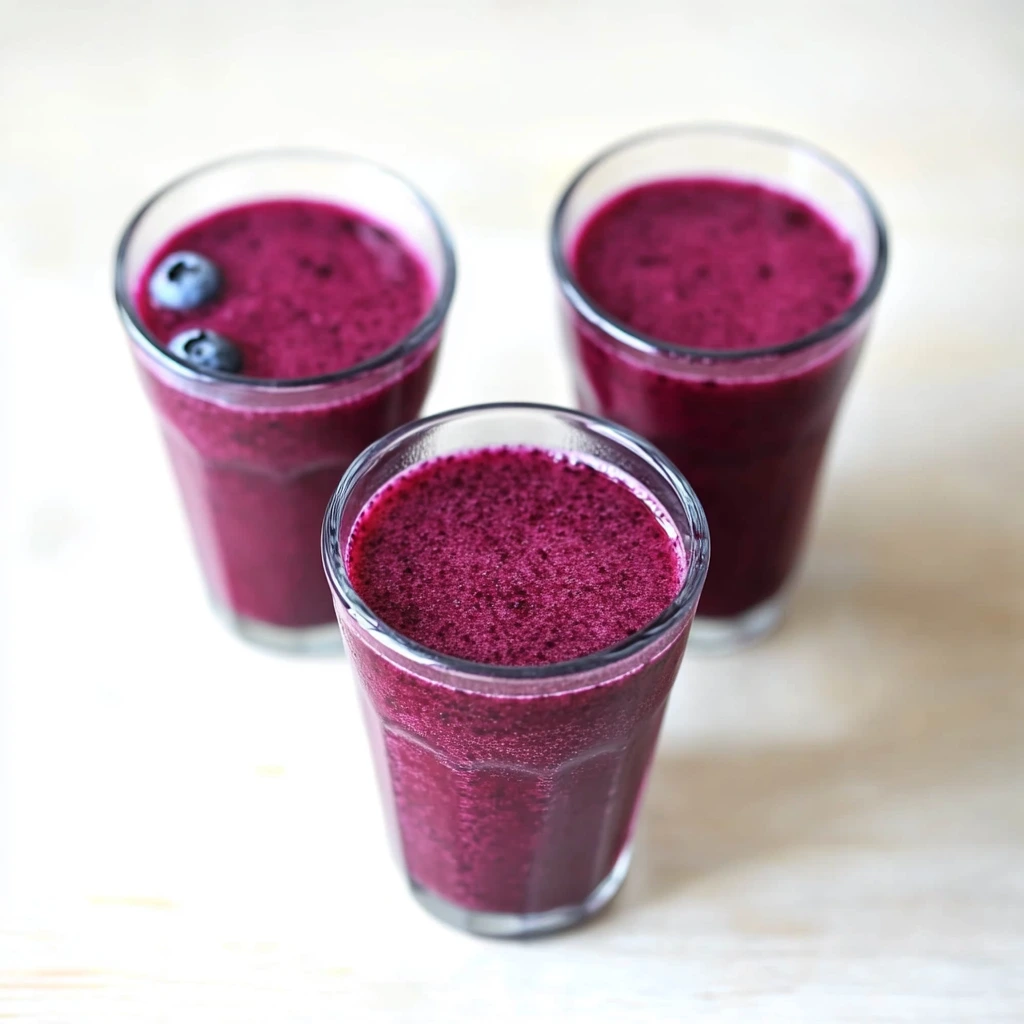
Table of Contents
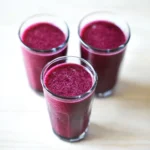
Blueberry Juice Recipe
- Total Time: 5 minutes
Ingredients
-
1 cup fresh blueberries
-
1 cup cold water
-
1 tbsp lemon juice
-
1–2 tbsp sweetener (optional)
Instructions
-
Rinse and clean blueberries.
-
Blend with water, lemon juice, and sweetener until smooth.
-
Strain if desired. Serve immediately.
Notes
Use frozen berries for a thicker texture. Skip sweetener for sugar-free version.
- Prep Time: 5 mins
Nutrition
- Serving Size: 2
Health Benefits of Blueberry Juice
How blueberry juice supports your immune system
Blueberry juice is more than just a delicious fruit drink — it’s a powerful immune-boosting beverage. These tiny berries are loaded with vitamin C, which is essential for supporting your immune defenses. Just one cup of fresh blueberries can provide up to 24% of your daily vitamin C needs, helping your body fight off infections and reduce inflammation naturally.
But vitamin C isn’t the only immune helper here. Blueberries are also rich in flavonoids, especially a type called anthocyanins. These compounds give blueberries their deep blue color and also play a vital role in strengthening your immune response. According to studies, people who consume more flavonoid-rich foods like blueberries tend to have fewer colds and upper respiratory tract infections.
So, when you start your day with a glass of fresh blueberry juice, you’re not just enjoying something tasty — you’re giving your immune system a strong, natural ally.
Antioxidants and their role in anti-aging and cell protection
One of the biggest reasons health experts call blueberries a superfood is because of their antioxidant power. These antioxidants help your body neutralize free radicals — unstable molecules that damage your cells and speed up the aging process.
Drinking blueberry juice regularly may help protect your skin from signs of aging like wrinkles and dullness, while also supporting brain health and heart function. In fact, research has shown that blueberry antioxidants may improve memory, reduce oxidative stress, and even protect DNA from damage.
If you’re looking for a simple way to fight aging from the inside out, blueberry juice is a great place to start. It delivers potent antioxidants in every sip, making it one of the healthiest fruit juices you can enjoy — and with no artificial ingredients.
Nutritional Profile of Blueberries and Juice
Macronutrients and micronutrients in blueberries
Blueberries may be small, but they pack a serious nutritional punch — especially when juiced. A single serving of blueberry juice made from one cup of fresh blueberries provides a balanced mix of essential nutrients without adding too many calories.
Here’s a quick look at what you’re getting in one serving of blueberry juice:
| Nutrient | Amount (approx.) |
|---|---|
| Calories | 68 kcal |
| Total Carbohydrates | 17g |
| Dietary Fiber | 2g |
| Sugars | 14g |
| Protein | 1g |
| Fat | 0.5g |
| Vitamin C | 10mg (12% DV) |
| Vitamin K | 14µg (13% DV) |
| Vitamin B6 | 1mg (50% DV) |
| Potassium | 66mg |
| Magnesium | 6mg |
| Iron | 1mg (6% DV) |
Blueberries are naturally low in fat, cholesterol-free, and provide a good source of dietary fiber and plant-based micronutrients. This makes blueberry juice a smart option for anyone trying to eat clean, detox naturally, or support heart and brain health.
Daily value contribution of blueberry juice
What makes blueberry juice especially impressive is how efficiently it helps you meet daily vitamin and mineral goals — even in small servings.
- Vitamin C boosts immunity and supports collagen production, great for skin and joint health.
- Vitamin K helps with blood clotting and bone metabolism.
- B vitamins, particularly B6 and B9 (folate), support brain function and help regulate energy levels.
- Potassium and magnesium assist with hydration, nerve signaling, and muscle recovery — especially beneficial after workouts.
Because blueberry juice is made mostly from water-rich fruit, it’s also hydrating and low in calories, making it ideal for weight management and wellness-focused diets.
Whether you’re watching your sugar intake, trying to boost antioxidants, or just want to enjoy a delicious fruit drink with real benefits, a glass of freshly blended blueberry juice is a nutrient-rich choice that delivers.
Is Drinking Blueberry Juice Good for You?
Scientific findings and wellness claims
Yes — drinking blueberry juice is absolutely good for you, and science backs that up. Blueberries are among the most researched fruits when it comes to health benefits, especially for heart, brain, and metabolic health.
Numerous studies have shown that consuming blueberries or their juice regularly can:
- Improve brain function – thanks to high levels of flavonoids that support memory and cognitive processing.
- Support heart health – by lowering blood pressure and reducing LDL (bad) cholesterol.
- Enhance insulin sensitivity – which is helpful for people with prediabetes or type 2 diabetes.
- Reduce inflammation – due to antioxidants like anthocyanins, which lower oxidative stress in the body.
According to a study published in the Journal of Nutrition, drinking just 200ml of blueberry juice daily for 12 weeks improved memory and reduced depressive symptoms in older adults. That’s powerful proof that even one small glass a day can have lasting health effects.
Plus, because it’s naturally low in calories and rich in fiber and vitamins, blueberry juice is a great addition to almost any diet, whether you’re eating plant-based, low-carb, gluten-free, or simply clean and balanced.
Pros and cons of daily consumption
While blueberry juice is packed with health benefits, it’s also important to consume it mindfully — especially if you’re buying store-bought versions.
Here are some pros and cons to consider:
Pros:
- Packed with antioxidants and essential vitamins
- Naturally hydrating and energizing
- Helps support brain, heart, and metabolic health
- May aid in reducing inflammation and detoxing the body
Cons:
- Store-bought blueberry juice can be high in added sugars and lack fiber
- Juicing removes some fiber found in whole berries
- Can be expensive if not made at home
- May interact with medications like blood thinners due to high vitamin K levels
To get the most out of your juice, make it fresh at home using whole blueberries and a splash of lemon. That way, you control the sweetness and preserve the nutrients.
In short, if you’re looking for a natural, delicious way to support your body — drinking blueberry juice a few times a week is a smart and tasty choice.
Does Blueberry Juice Help Detox Your Body?
How blueberry compounds support liver and kidney function
When people talk about “detoxing,” they often mean clearing the body of toxins, improving digestion, and feeling refreshed. While no single food or drink can do all the work, blueberry juice plays a meaningful role in supporting your body’s natural detox systems — especially your liver and kidneys.
Here’s how:
- Anthocyanins, the powerful antioxidants in blueberries, help reduce inflammation in the liver and protect it from oxidative stress.
- Blueberries are rich in vitamin C and manganese, both of which assist in the body’s detoxification pathways.
- They contain quercetin, a natural plant compound that supports kidney health and may help eliminate waste products more efficiently.
By reducing the burden on your organs, blueberry juice indirectly supports better digestion, clearer skin, and improved energy levels — all signs of a healthier, cleaner system.
Even more, blueberries are nearly 85% water, making their juice naturally hydrating. And proper hydration is one of the most essential (yet overlooked) parts of effective detoxing.
So while blueberry juice won’t “flush out” toxins overnight, drinking it regularly can support your liver and kidneys in doing what they already do best: cleansing your body every day.
Comparison with other detox juices
Let’s put blueberry juice up against some of the most popular detox drinks:
| Juice | Detox Support | Nutrient Highlights |
|---|---|---|
| Blueberry Juice | Anti-inflammatory, antioxidant, kidney support | Vitamin C, anthocyanins, manganese |
| Lemon Water | Alkalizing, mild liver support | Vitamin C |
| Celery Juice | Diuretic, digestion enhancer | Potassium, folate |
| Beet Juice | Liver detox booster | Nitrates, betalains |
| Green Juice | Overall cellular support | Chlorophyll, iron, fiber |
While green and beet juices may offer stronger direct liver benefits, blueberry juice stands out for its antioxidant power, gentle support for kidneys, and great taste — making it easier to drink daily. Plus, it pairs beautifully with other detoxifying ingredients like lemon, mint, and ginger for even more impact.
If you’re building a long-term wellness routine, blueberry juice is a solid and satisfying addition.
How to Make Fresh Blueberry Juice at Home
Step-by-step easy recipe (inspired by top recipe source)
Making blueberry juice at home is simple, quick, and requires just a few ingredients. This version is inspired by my favorite method — no fancy juicers, no preservatives, just clean, wholesome ingredients that taste like summer in a glass.
Here’s my go-to recipe:
Ingredients:
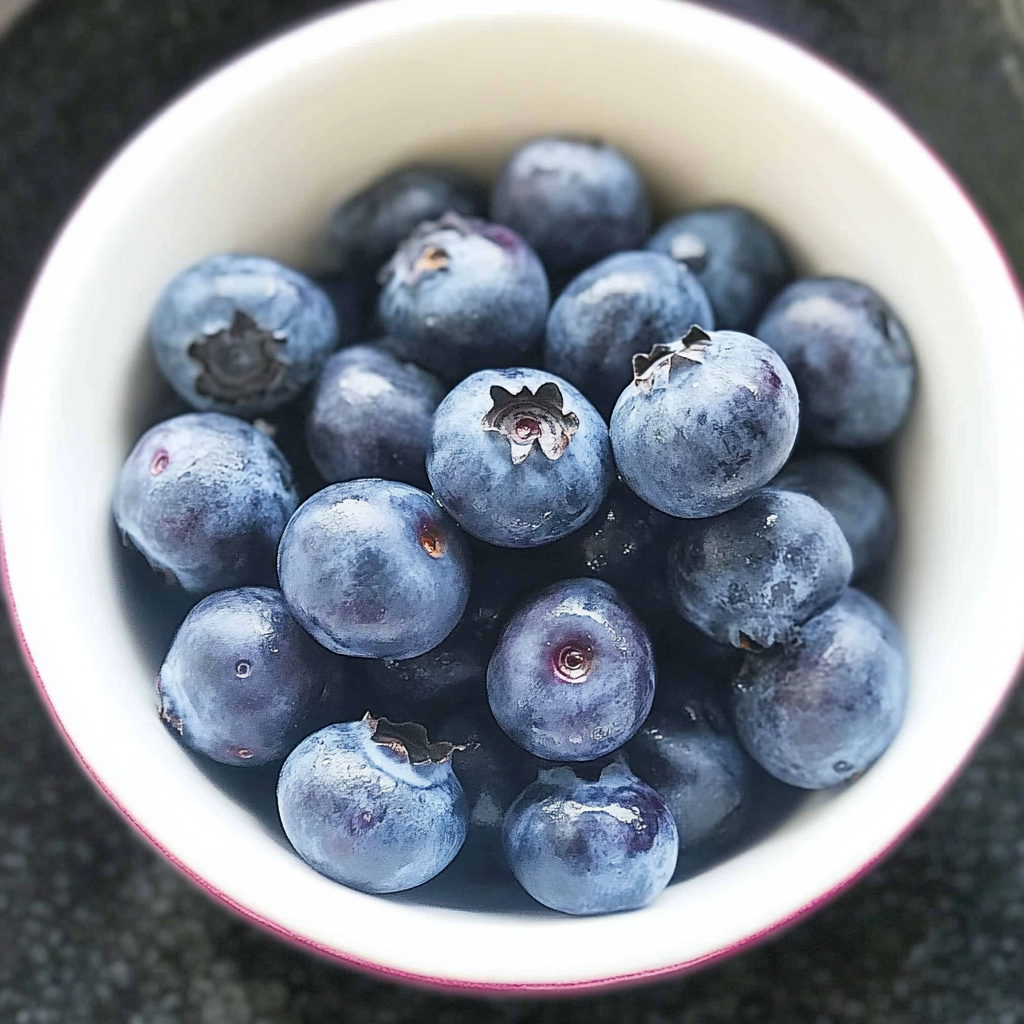
- 1 cup fresh blueberries (washed and cleaned)
- 1 cup cold water
- 1 tablespoon lemon juice (freshly squeezed)
- 1–2 tablespoons raw sugar, maple syrup, or any sweetener (optional)
Instructions:
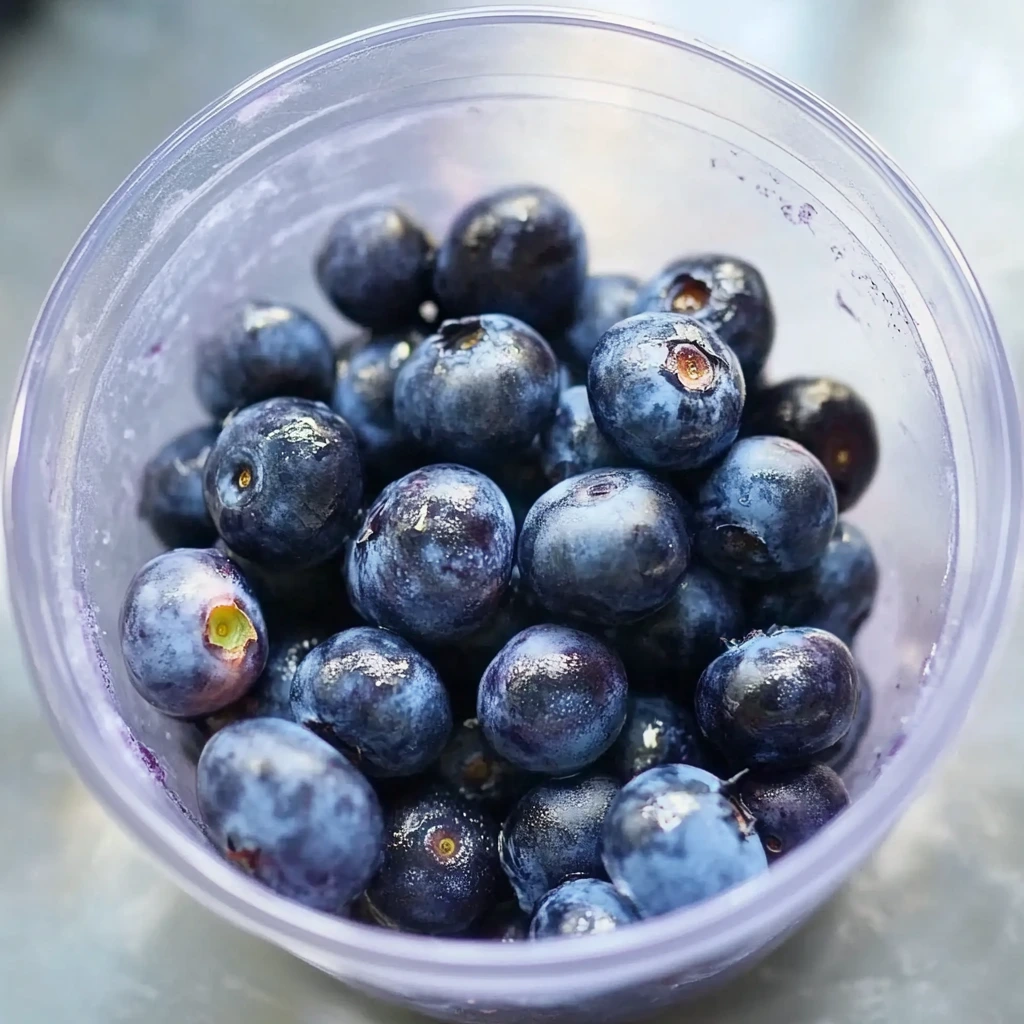
- Clean the berries:
Rinse blueberries well under running water. For extra cleanliness, soak them in a mix of 1 tablespoon vinegar and ½ teaspoon baking soda for 15–20 minutes. Rinse again and drain. - Blend it up:
Add the blueberries, water, lemon juice, and sweetener into a blender. Blend on high speed until smooth. This should take 30–60 seconds. - Strain (optional):
If you prefer a thinner juice, strain the mixture through a fine mesh sieve or cheesecloth to remove pulp. For more fiber and nutrients, enjoy it as-is. - Serve immediately:
Pour into glasses and serve cold. You can also refrigerate it for up to 24 hours, but the flavor is best right after blending.
This juice is naturally sweet and slightly tangy, thanks to the blueberries and lemon. You’ll taste the freshness in every sip.
Ingredient swaps and sugar alternatives
Looking to customize the recipe? Here are some easy swaps and healthy tips:
- For sweetness:
Use honey, agave, coconut sugar, or stevia instead of raw sugar. If your berries are sweet enough, skip sweeteners entirely. - Flavor boosters:
Add a few mint leaves or a small piece of ginger before blending for a refreshing twist. - Fruit combos:
Try mixing in strawberries, raspberries, or pomegranate for a multi-berry juice with even more antioxidants. - Frozen blueberries:
No fresh berries? Frozen ones work just as well and add a slushy texture when blended cold.
Homemade blueberry juice is not only healthier than store-bought versions, but it’s also free from artificial flavors, added sugars, and preservatives. Plus, you get the satisfaction of making it yourself — a true kitchen win.
Don’t miss our homemade orange juice recipe for another vibrant, vitamin-packed beverage.
Blueberry Juice vs 100% Blueberry Juice
What makes 100% juice different?
If you’ve ever browsed the juice aisle, you’ve probably seen labels like “100% blueberry juice” or “juice drink with blueberry flavor.” While they may sound similar, the difference is important — especially if you’re drinking juice for health reasons.
100% blueberry juice means that all the liquid in the bottle comes purely from blueberries — with no added water, no other fruit juices, and no artificial ingredients. It’s the most concentrated and nutrient-dense version you can buy. This type of juice gives you the full benefits of antioxidants, vitamins, and minerals that blueberries offer.
On the other hand, products labeled “blueberry juice drink” or “juice cocktail” often contain added sugars, artificial flavors, and a mix of cheaper fruit juices like apple or grape. These options are usually less expensive — but also less beneficial.
When in doubt, read the ingredients list. If the first ingredient isn’t blueberries, it’s not 100% blueberry juice.
How to choose or make real blueberry juice
Here’s how to ensure you’re getting the real thing — whether buying or blending at home:
If buying pre-made juice:
- Check the label for “100% juice” and confirm blueberries are the first or only ingredient.
- Avoid added sugars, preservatives, and juice blends unless clearly labeled.
- Look for cold-pressed or not-from-concentrate varieties for maximum nutrient retention.
If making it at home:
- Use only fresh or frozen blueberries and a little water.
- Don’t add fillers like apple or pear unless you want a mix — and be aware that doing so dilutes the blueberry content.
- Skip sweeteners if your berries are naturally ripe and flavorful.
Pro Tip:
Homemade blueberry juice often qualifies as 100% juice if you keep the ingredient list clean. That’s why it’s not only more cost-effective but also more nourishing.
In summary: Always aim for 100% juice — whether from your kitchen or the store. It’s the only way to guarantee you’re getting all the natural power blueberries have to offer.
Best Combinations with Blueberry Juice
Fruits and herbs that enhance flavor and health benefits
While blueberry juice is flavorful on its own, pairing it with other fruits and herbs can elevate both the taste and the nutritional value. Whether you’re looking for a detox blend, a breakfast drink, or a fun mocktail base, these combinations are both delicious and functional.
Here are some of the best fruits and herbs to combine with blueberry juice:
- Lemon or lime – Adds brightness and boosts vitamin C. Also enhances detox benefits.
- Ginger – Anti-inflammatory and spicy; great for digestion and immunity.
- Mint leaves – Adds a refreshing touch and aids in digestion.
- Apple – Naturally sweetens the juice while providing additional fiber.
- Beetroot – Intensifies the color and supports liver function for detox.
- Cucumber – Adds hydration and helps flush out toxins.
- Pineapple – Brings tropical sweetness and digestive enzymes (bromelain).
- Strawberries or raspberries – Increase antioxidant content and add a tangy punch.
These combos are ideal for juicing, blending, or infusing into water with a splash of blueberry juice for a flavorful upgrade.
Juicing ideas: blueberry & ginger, blueberry & beet, etc.
Here are a few easy blends to try at home:
1. Blueberry & Ginger Detox Juice
- 1 cup blueberries
- ½ inch fresh ginger
- 1 tablespoon lemon juice
- 1 cup cold water
Blend and strain. Great for cold prevention and gut health.
2. Blueberry Beet Energy Juice
- ¾ cup blueberries
- ½ small beetroot (peeled and chopped)
- ½ apple
- 1 cup water
Bright red, earthy, and full of iron — a perfect pre-workout drink.
3. Blueberry Mint Cooler
- 1 cup blueberries
- A handful of fresh mint
- Juice of ½ lime
- 1 cup chilled sparkling water
Blend the blueberries and mint, then mix with lime and sparkling water. Serve over ice.
4. Blueberry Pineapple Sunrise Juice
- 1 cup blueberries
- ½ cup pineapple
- 1 tsp chia seeds (optional)
- 1 cup coconut water
Hydrating and tropical — perfect for summer mornings.
These combinations not only add variety but also allow you to customize your juice based on your wellness goals, taste preferences, and what’s in season.
How to Incorporate Blueberry Juice Into Your Diet
Blueberry juice for breakfast, snacks, or detox cleanse
Adding blueberry juice to your daily routine doesn’t mean drinking the same glass every morning. It’s a versatile, nutrient-rich drink that can be enjoyed in many ways throughout the day — whether you’re focused on wellness, hydration, or just flavor.
Here are smart and simple ways to include it:
1. Start your day with it
Swap your morning coffee or orange juice with a glass of fresh blueberry juice. It gives you a burst of natural energy and antioxidants to kick off your day.
2. Mid-morning snack companion
Pair it with a handful of almonds, a boiled egg, or Greek yogurt. This keeps blood sugar steady while satisfying sweet cravings naturally.
3. Post-workout recovery drink
Blueberry juice helps reduce muscle inflammation and restores hydration after a workout. Mix it with a scoop of protein powder or drink it straight with ice.
4. Cleanse day boost
On detox or reset days, sip blueberry juice with lemon or cucumber to support liver function and reduce bloating. It’s a gentle alternative to harsh cleanses.
5. Evening mocktail base
Mix with sparkling water, lime, and mint for a healthy “cocktail” that’s sugar-free and satisfying. It’s perfect for relaxing without alcohol.
Creative uses: smoothies, mocktails, ice pops
Want more fun ways to enjoy blueberry juice? Get creative with these ideas:
1. Smoothie base
Use blueberry juice instead of milk or yogurt in fruit smoothies. Combine with banana, spinach, and chia seeds for a powerful antioxidant boost.
2. Blueberry ice pops
Freeze fresh juice in molds for a summer treat that’s sweet and hydrating — perfect for kids and adults alike.
3. Overnight oats
Swap water or milk with blueberry juice when soaking oats overnight. It adds natural sweetness and flavor.
4. Salad dressing
Yes, really! Mix blueberry juice with olive oil, balsamic vinegar, and Dijon mustard for a fruity vinaigrette.
5. Berry mocktails
Combine blueberry juice with fresh muddled berries, herbs, and sparkling water. Garnish with lemon slices or a rosemary sprig for a fancy, zero-alcohol drink.
No matter how you use it, blueberry juice is one of the easiest (and tastiest) ways to sneak more nutrients into your meals and snacks. Its natural sweetness and versatility make it a smart choice for busy families, clean eating, or anyone trying to add more real food into their day.
Side Effects and Precautions of Blueberry Juice
When to avoid it (medications, allergies, etc.)
While blueberry juice is generally safe and beneficial for most people, there are a few situations where you should be cautious.
1. Allergies to berries
Though rare, some people may have allergic reactions to blueberries. Symptoms can include itching, swelling of the lips or tongue, hives, or digestive discomfort. If you’ve never had blueberries before, start with a small amount and monitor your body’s response.
2. Blood thinning medications
Blueberries are high in vitamin K, which plays a role in blood clotting. If you’re taking anticoagulants (like warfarin), drinking large amounts of blueberry juice could interfere with your medication. Always consult your doctor if you’re on blood thinners.
3. Blood sugar concerns
While blueberries have a relatively low glycemic index, blueberry juice — especially if store-bought or sweetened — can spike blood sugar levels. Diabetics should stick to fresh, unsweetened juice and consume it in moderation.
4. Digestive sensitivity
Drinking too much fruit juice, including blueberry juice, can cause bloating or diarrhea due to its natural sugar and fiber content. Start with half a glass if you have a sensitive stomach.
Recommended quantity and frequency
To get the benefits without going overboard, here are a few simple guidelines:
| User Type | Recommended Serving | Frequency |
|---|---|---|
| General adults | ½ to 1 cup (125–250ml) | 3–5 times per week |
| Kids (age 3+) | ½ cup (120ml) | 2–3 times per week |
| Diabetics or low-sugar | ½ cup unsweetened, diluted | Occasionally or as advised |
| Fitness-focused adults | 1 cup post-workout | 2–4 times per week |
Moderation is key. Drinking blueberry juice regularly — but not excessively — ensures you get its benefits without unwanted side effects. And always go for fresh, unsweetened versions when possible.
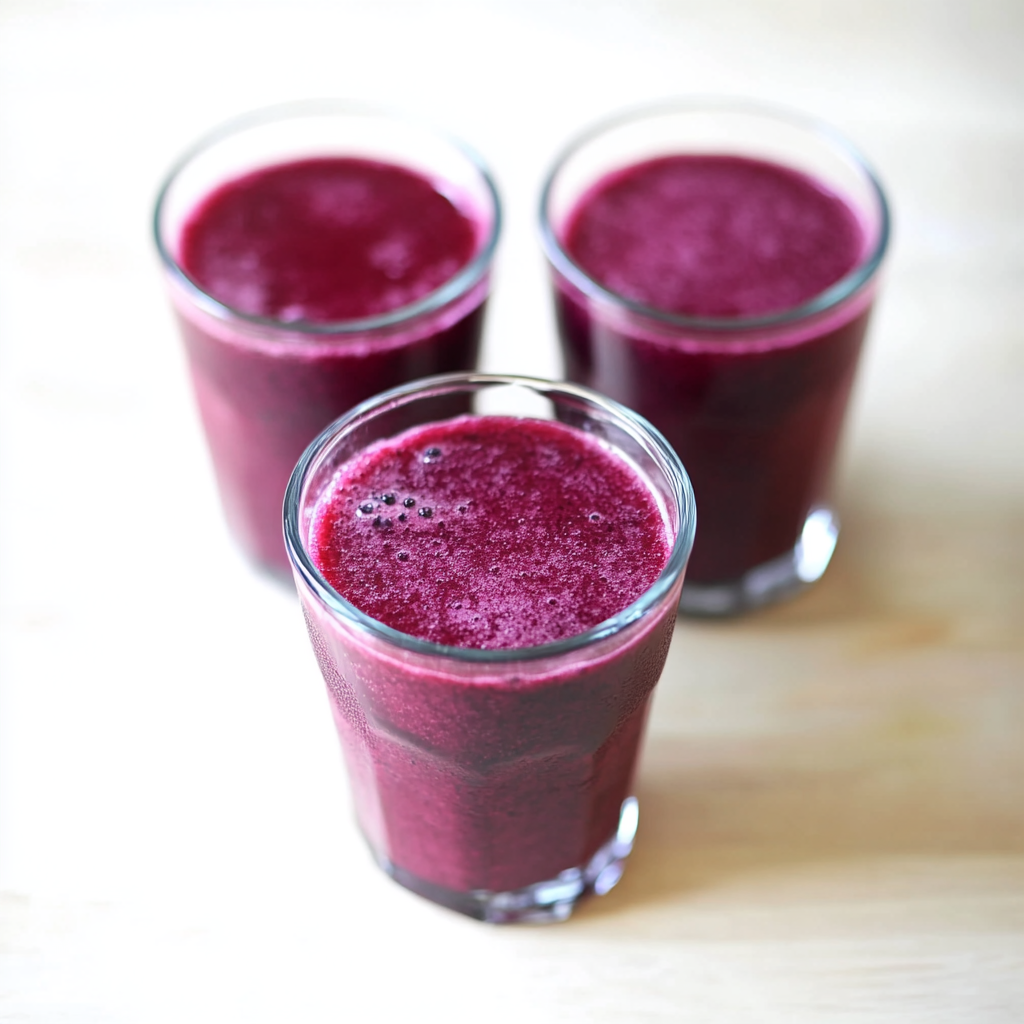
Conclusion
Blueberries aren’t just a delicious snack — they’re a true gift from nature, loaded with antioxidants, vitamins, and real health benefits. Whether you’re looking to support your immune system, give your body a gentle reset, or enjoy a refreshing, nutrient-rich drink, this vibrant berry blend fits right into your wellness goals.
With just a handful of ingredients, you can easily create it at home without added sugars or preservatives. It also blends beautifully with other fruits, herbs, and healthy recipes — from smoothies and mocktails to frozen treats and breakfast add-ons.
At the heart of it, it’s about choosing real, nourishing foods — and this drink offers just that. I hope this guide inspires you to add a splash of color, flavor, and natural goodness to your daily routine.
From my kitchen to yours — drink well, stay vibrant, and enjoy the journey.
For more recipes follow me in Facebook
Frequently Asked Questions About Blueberry Juice
Is drinking blueberry juice good for you?
Yes, drinking blueberry juice is very good for you — when consumed in moderation. It’s rich in antioxidants, vitamin C, fiber, and anti-inflammatory compounds that help boost immunity, protect your heart, and support brain function. It’s also low in calories, making it a healthy beverage choice for most diets.
Does blueberry juice detox?
Blueberry juice does support gentle, natural detoxification. Its antioxidants and water content help the liver and kidneys flush out toxins efficiently. While it won’t perform a dramatic cleanse on its own, drinking blueberry juice regularly contributes to better digestion, improved hydration, and a stronger immune response — all of which are important for ongoing detox.
Which juice is best for detox?
Some of the best juices for detox include:
Blueberry juice – antioxidant-rich and supports kidney function
Beet juice – excellent for liver cleansing
Lemon juice – alkalizing and vitamin C-rich
Cucumber juice – highly hydrating
Green juice (spinach, kale, celery) – full of chlorophyll and fiber
Blueberry juice stands out for being both effective and easy to drink every day.
What does 100% blueberry juice do?
100% blueberry juice delivers all the natural compounds found in whole blueberries — without added sugars or fillers. It helps improve cognitive function, reduce inflammation, support healthy blood pressure, and may even lower cholesterol. Drinking the real thing gives you full access to the nutrients and antioxidants that make blueberries a superfood.
How often should you drink blueberry juice?
Most experts recommend drinking ½ to 1 cup of blueberry juice, 3 to 5 times per week. That’s enough to provide consistent health benefits without going overboard on natural sugars. Always go for unsweetened or homemade juice for best results.
Can blueberry juice help with weight loss?
While not a magic weight-loss solution, blueberry juice can help support a healthy diet. It’s low in calories, high in nutrients, and naturally sweet — making it a great alternative to sugary sodas and snacks. When combined with a balanced diet and regular activity, it can contribute to better weight control.
